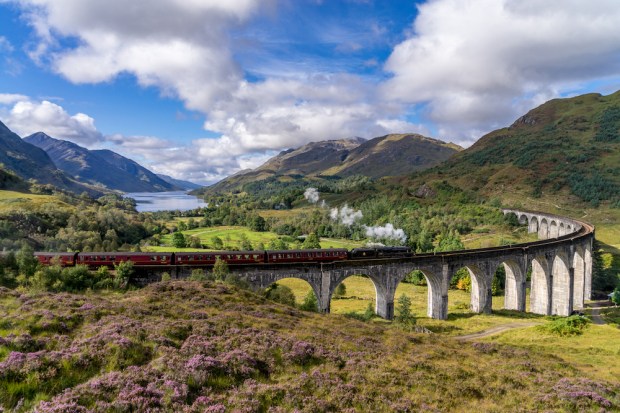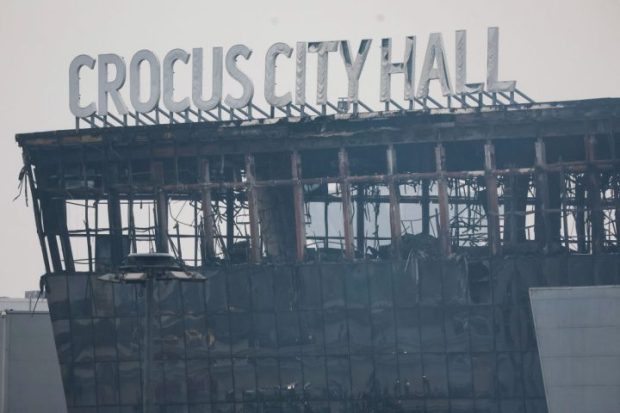For an organisation that likes to be popular these are troubling times for the BBC. This month the Corporation started sending out letters explaining that it had ended the universal exemption from paying the licence fee for the over-75s. From now on, unless you are in receipt of pension credits (taken as evidence of poverty) you’ll have to stump up £157.50 if you want to watch EastEnders – no matter how old you are. Needless to say, the BBC’s decision has not been popular; charities for the elderly have been highly critical – the Corporation has been accused of ‘lacking compassion’ and charities predict some pensioners will have to forego essentials like food and heating to keep the telly on. This is not an argument the national broadcaster wants to have; Auntie is supposed to be warm and generous – not cold and penny-pinching. But, it has to be said, she has only herself to blame.
How the BBC arrived at this point is a story that begins 20 years ago; it was the first flush of the Blair Ascendancy and Gordon Brown was establishing himself as the glowering master of the Treasury. Labour had promised to stick to the Tories’ spending plans for the first two years but when that self-denying ordinance ended it was time to begin handing out a few fiscal treats. Among them was granting the over-75s free TV licences. Something of a bauble perhaps (hardly life-changing) but a popular one which generated feel-good headlines. The deal was that the Treasury would reimburse the BBC for the lost revenue.
Fast-forward to 2016 and penny-pinching Osborne is Chancellor and busily practising ‘austerity’. By this stage the licence fee exemption is being claimed by more than 3 million households and is costing the Treasury somewhere around £750 million a year. It is also the time to negotiate a new licence fee settlement for the BBC ahead of the Royal Charter renewal in 2017. A deal is struck: the government says the licence fee will rise in line with inflation (a relatively generous offer) but in return, from April 2020, the BBC itself will have to shoulder the cost of the exemption if it wishes it to continue. Which is how the BBC found itself having to tell old people their privileges were being revoked. This is awkward – the elderly are by far the best customers for so-called ‘linear’ broadcasting (ie. turning on the telly and watching what is served up by the schedulers) but Auntie is being squeezed.
For the past several years the BBC’s overall income has been dropping partly because of demographic changes beyond its control: more and more younger people no longer watch traditional TV channels and get their news and entertainment from web-based streaming services. In addition, growing numbers of people on the right of politics are withholding payment of the licence fee because of BBC bias. If unchecked these trends could slowly strangle the revenue stream which keeps the whole show on the road. This points to the wider, political, context which explains the fix the Corporation is in.
Whilst the Blair government sometimes had its differences with the BBC (remember Andrew Gilligan, the elusive WMDs and the Hutton Inquiry?) essentially the government and broadcaster were soulmates. For the BBC Blair was Mr Perfect – the political word made flesh if you will – and in those years scant regard was paid to the sensibilities of the Tories. So when the political pendulum swung, the BBC found itself with few natural allies on the government benches. This wasn’t so evident during the Tory-lite premierships of Cameron and May, but the Johnson administration is another matter entirely; the BBC’s heartfelt opposition to Brexit represents an unbridgeable chasm. And in Dominic Cummings the BBC has a sworn enemy at the heart of government who believes the BBC is permeated by leftist ideology.
One might have thought under the circumstances it would have been wise for the Corporation to adopt an emollient stance. Not a bit of it. In March it broadcast a documentary about Cummings called ‘Taking Control’, fronted by the Newsnightpresenter Emily Maitlis. It was anything but complimentary, portraying Cummings as a sinister manipulator of public opinion for unsavoury political ends. Then came lockdown and Mr Cummings’s notorious trip to the North. What struck me at the time was the BBC’s obsessive pursuit of that story; it amounted to a forceful attempt to unseat the Prime Minister’s senior adviser. It culminated with Ms Maitlis deciding she was entitled to ‘speak for the nation’ by forthrightly condemning Cummings and the government from the Newsnightpresenter’s chair.
No 10 was incandescent after that episode and whilst the BBC publicly chastised Maitlis it deepened an already bitter feud with the broadcaster. Decades of covert hostility to the Conservative cause inside the BBC has poisoned the relationship; the plain truth is that many Tory MPs and millions of their supporters no longer trust the Corporation to be fair and now they sense it’s payback time. The government has already intimated that it is considering decriminalising non-payment of the licence fee (an announcement is expected in the autumn) and if that happens the BBC reckons it could lose maybe another £350 million annually. Then, in 2022 there will be a mid-point review of the current Charter with a strong possibility that the whole idea of a universal licence fee, a tax by any other name, might be called into question in the 2027 charter renewal discussions.
There is a strong sense in all this of a reckoning; that flapping noise in the foyer of New Broadcasting House is the sound of political chickens coming home to roost. Meanwhile we can savour the irony of a situation where the BBC is itself imposing a charge on old people. This upends the usual pattern: traditionally a thinktank, or charity, or activist alerts the BBC to a ‘vulnerable’ group whose needs can only be met by a large infusion of taxpayers’ money. The Opposition parties pile-in, the Today programme takes up the baton and the whole of the BBC news machine falls into step behind it. The government feels the political heat and – abracadabra! – the money appears.
But this time it is the BBC itself which finds itself in the dock as charities for the elderly call on it to shell-out. To do so would mean hard choices: perhaps that half a million quid a year for that newsreader is a bit high? Perhaps that ex-footballer bloke doesn’t need a million for fronting Match of The Day? Perhaps some of those pointless middle-managers could be let go? The BBC’s response to date has been to announce large-scale redundancies among its frontline journalists – the people who actually do the work. That will cut costs but do nothing to tackle the underlying problem. The Corporation’s rampant bias stems from a total lack of political diversity among the staff. Until the Corporation admits to that problem, and starts doing something about it, the rift will not be healed. Auntie needs more than cosmetic surgery; she needs to re-discover the meaning of ‘impartiality’ if her relationship with the government is to be repaired. A BBC that was once again trusted by all would not only be a great national asset but also the best guarantee of the Corporation’s future. As things stand the BBC has made an enemy of the government and will pay the price.
Got something to add? Join the discussion and comment below.
Get 10 issues for just $10
Subscribe to The Spectator Australia today for the next 10 magazine issues, plus full online access, for just $10.



















Comments
Don't miss out
Join the conversation with other Spectator Australia readers. Subscribe to leave a comment.
SUBSCRIBEAlready a subscriber? Log in